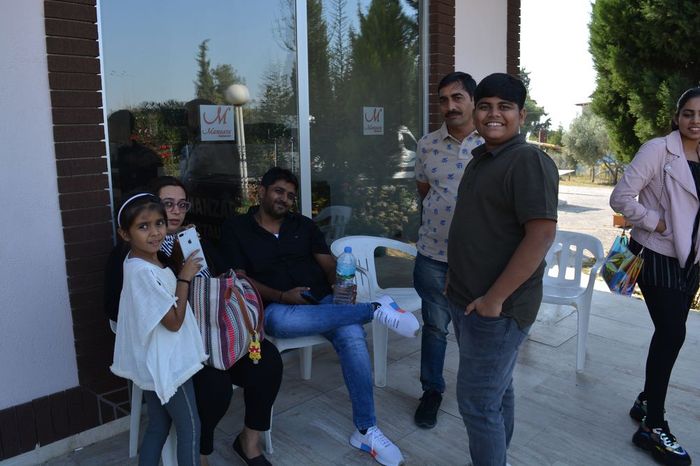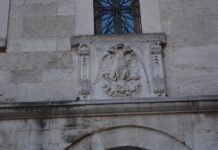But he sat on unmoved, consoling and gently chiding them in a way; this demeanour filled all with amazement. However, when he saw that the Latins approached the walls quite shamelessly and would not listen to sensible advice, he sent first for his son-in-law, Nicephorus, my Caesar. Him he ordered to take stout soldiers, skilled archers, and station them on the top of the wall, and added the command that they should shoot plenty of arrows at the Latins without taking aim, but should rather miss, so as to terrify them by the frequency of the darts, but by no means to kill.
For, as I said above, he respected the sanctity of the day and did not wish for civil war. Then he bade others of the nobles, most of whom carried bows, and others wielding long lances, to throw open the gate of St. Romanus and make a display of a violent assault upon them. They were to draw themselves up in this order. . . . each of the spear-bearers was guarded by two peltasts on either side ; then in this order they were to proceed at a slow pace, but send a few skilled archers ahead to shoot at the Franks from a distance, and to keep turning about from one side to another.
Christians being killed
And as soon as they saw only a narrow space left between the armies, they were to give the order to the archers accompanying them to direct a shower of arrows at the horses, not the riders, and to dash at full speed against the Latins, partly to break the violence of the Franks’ onrush by wounding the horses so that they could not ride against the Romans, and secondly, which was more important, to prevent any Christians being killed. The nobles joyfully fulfilled the Emperor’s bidding ; threw open the gates, and now galloping at full speed against the enemy, and now checking the horses, they killed many of them while only a few of their own party were wounded on this day. I leave them to their perdition.
My lord, the Caesar, took, as I have said, the experienced archers and stood on the towers shooting at the barbarians. And all aimed well and shot far; for all these young men were as skilled as the Homeric Teucer in the use of the bow. But the Caesar’s bow was in very deed the bow of Apollo; and he did not after the manner of the Homeric Greeks draw the string to his breast and place the arrow and fit it to the bow exhibiting like them the art of the hunter, but like a second Heracles, he discharged deadly arrows from immortal bows and provided he willed it, he never missed the mark at which he aimed. For on other occasions during the time of strife and battle, he invariably hit whatever object he proposed himself, and whatever part of a man he aimed at, that part exactly he always struck.
Read More about Second Battle with Heresy part 21








